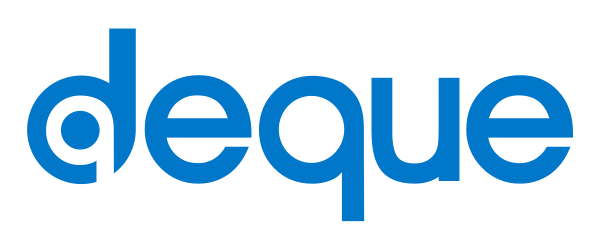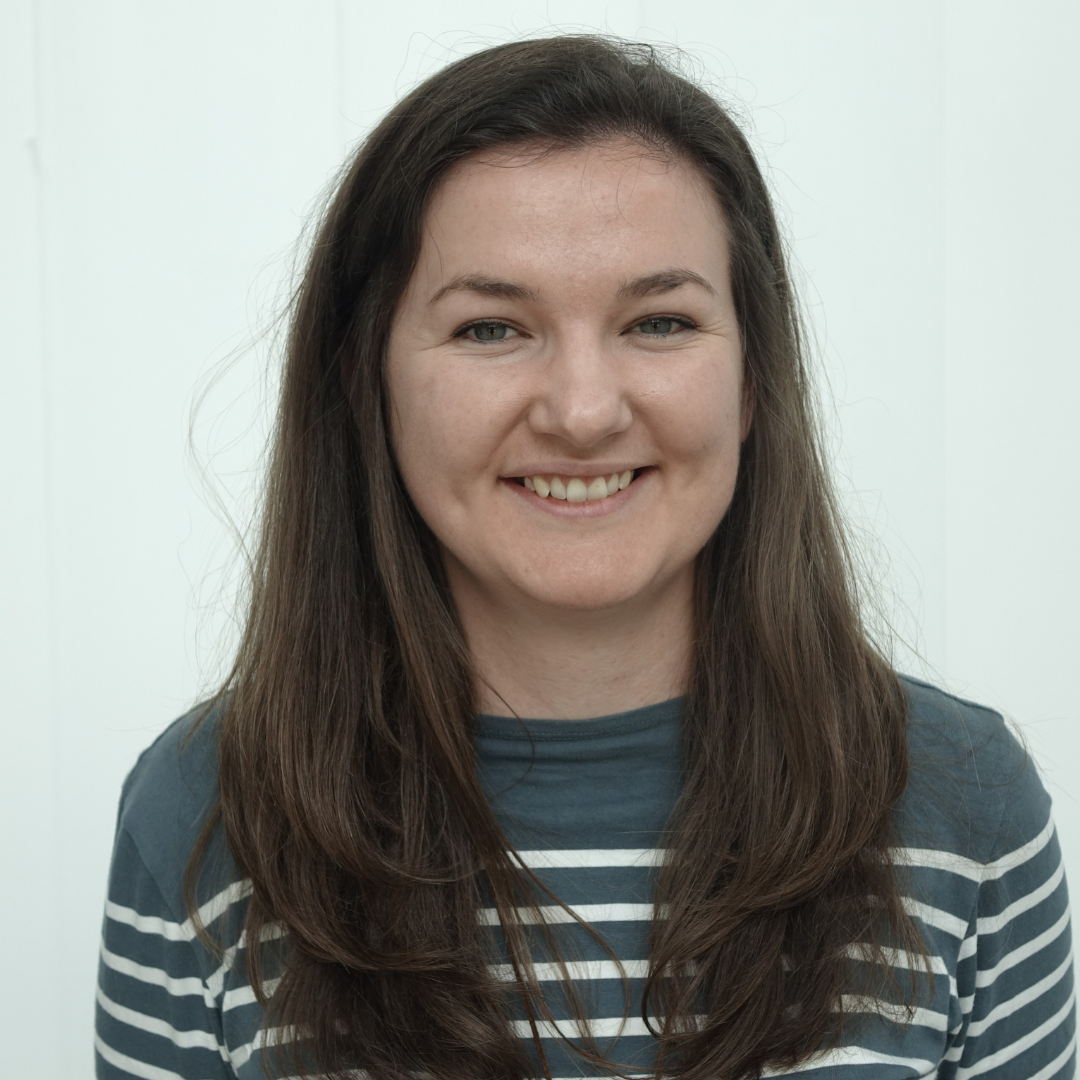How will Artificial Intelligence change accessibility testing?
- This webinar took place on Tuesday 26 September 2023 at 1pm-2pm BST.
 In this webinar, Dylan Barrell, Chief Technology Officer from Deque joined Robin Christopherson and Alice Taylor from AbilityNet to discuss how Artificial Intelligence (AI) can help improve accessibility testing, including:
In this webinar, Dylan Barrell, Chief Technology Officer from Deque joined Robin Christopherson and Alice Taylor from AbilityNet to discuss how Artificial Intelligence (AI) can help improve accessibility testing, including:
- How to increase accessibility testing efficiency with human-centred AI
- What exactly is human-centred AI? Is it marketing hype or genuinely helpful?
- Where is AI going in the future?
Whether you are a developer, a tester, or someone passionate about inclusive technology, this webinar is a must-attend event.
The webinar recording, slides, and transcript are now available on this page.
Download a copy of the transcript
Learn more about Artificial intelligence and Accessibility
- 5 ways AI can help disabled people in the workplace
- How Artificial Intelligence can revolutionise the world of accessibility
- What does Chat GPT think about how AI can help disabled people?
Digital accessibility, or web accessibility, is about universality and making websites and digital services that can be accessed and used by everyone - people on different devices, in different environments and with different abilities. Our vision is a digital world accessible to all, and we believe the power of technology should be available to everyone.
Meet the panellists
Dylan Barrell, Chief Technology Officer at Deque
Dylan is the Chief Technology Officer at Deque. He has almost 20 years of experience in technology development, technical sales, product management, product marketing, and corporate development. Dylan founded a startup in 1989 that was acquired. He then went public with OpenText and helped grow revenues to over $400 million. He later led the effort to create a digital center within a Borders store and to begin the transition from purely physical products to digital and physical product mix delivered in a cross-channel online and in-store way. In addition to his work experience, Dylan has an MBA from the University of Michigan and a BS from the University of the Witwatersrand. Dylan believes in leading through action to create value for shareholders and the community.
Alice Taylor, Principal Accessibility Consultant Team Leader at AbilityNet
Alice Taylor joined AbilityNet after spending five years working as a Front End Developer in a range of digital agencies.
As a senior accessibility consultant in our Accessibility Services Team, Alice provides in-depth auditing of web/mobile websites and applications and carries out design, wireframe and specialist assistive technology reviews, for a wide range of clients across the public and private sectors.
Robin Christopherson, MBE, Head of Digital Inclusion at AbilityNet
Robin is Head of Digital Inclusion at AbilityNet and is a leading light in the global community of accessibility and digital inclusion specialists. His work was recognised with the award of an MBE in the 2017 Queen's new-year honour’s list for services to digital inclusion, as well as recently being awarded an honorary doctorate from the University of Suffolk department of Computer Science.
Robin is also a member of the All Party Parliamentary Groups on Disability (APPGD) and Assistive Technology (APPGAT) and was included in the 'Power 100' list of the UK’s most influential people with disabilities, as well as the UN's ‘World's top 100 most influential people in digital government’- voted by over 500 organisations including governments and global NGOs.
Q&A
This webinar lasted 60 minutes and included an opportunity to pose questions to the guests. The panel were able to answer many questions from attendees during the live session, which you can find by watching the webinar playback or accessing the transcript. Further questions answered from the panel can be found below.
Q: Is there a risk that sub-standard AI accessibility checkers arise that like overlays are too attractive to the uninformed?
Robin: For the foreseeable future, any accessibility checker - even though it leverages the power of cutting-edge AI - will only ever be able to do a partial job of testing a website or app for compliance. So the key aspect is how much it reflects this in its messaging. Some current accessibility overlay products definitely over promise and under deliver - and the same could be true for accessibility checkers too.
Q: What features or background information make Robin trust Be My AI more than other AI features such as ChatGPT?
Robin: The team at Be My Eyes have worked extensively with Open AI and many hundreds of blind users to optimise the responses and reduce text and object recognition errors. They have also built in the option to call a sighted volunteer to double-check the accuracy of the image description given. Whilst there will always be mistakes made, the level of detail and interpretation provided by the new level of AI is night and day.
Q: When do you expect AI to be able to (automatically) adapt interfaces for users with different accessibility needs, down to very personal preferences or abilities? Do you already see examples of that in the wild?
Robin: I'm hopeful that we'll soon see some extremely impactful applications of AI in terms of wholesale optimisation of a website or app's interface. We already see some very useful applications in the form of the 'Smart invert' and 'Screen recognition' options in iOS. Watch this space.
Q: Technical communities of practice have a history of coming together to push back against inaccurate sources of technical information. The accessibility community of practice has recently pushed back against overlays. How do you think the future of AI in accessibility will impact the ability of subject matter experts to have an effective voice?
Robin: Again, it comes down to the correct 'selling' of a solution that includes AI. If any solution (an accessibility checker or end-user overlay/browser plug-in) promises to achieve full accessibility and then under deliver will be vocally opposed by experts and end-users alike.
Q: Do you think we’ll still be talking about “code compliance” in a few years? Isn’t that a trivial thing AI will be able to fix?
Alice: Definitely! While there are ways that AI can help with generating accessible code, this currently isn’t 100% accurate and shouldn’t be relied upon. It also output’s HTML, so any accessibility fixes currently need to be integrated by humans into the specific platforms/systems, which takes time and an understanding of what is required. I don’t see AI changing that anytime soon.
Robin: Whilst it isn't necessarily a trivial problem, the probability that AI will be able to produce accessible code at some point in the future is high. Whether AI will then also be able to do the job of a number of users with lived experience of disability to bridge the gap between technical compliance and 'real life' usability is another question.
Q: Do you know if there are any plans to introduce legislation around the use of AI within Accessibility testing or usage as an assistive technology?
Robin: We aren't aware of any plans as yet - but there will definitely be regulations around the general use of AI at some point, and it may well be that lobbying from disabled users (and organisations like AbilityNet) will ensure that accessibility considerations are included.
Webinar FAQs
The slidedeck, recording and transcript will be available on this page following the webinar's live broadcast.
Find out more in our webinars FAQs and sign up to our next free webinar in our AbilityNet Live webinar series.
You can find an archive of our webinars on our website and we also offer paid role-based accessibility training.
Useful links
- Sign up to the AbilityNet newsletter for more free resources like this webinar!
- Find out about AbilityNet's Digital accessibility services
Upcoming Webinars
-
11 Jul 2024 - 13:00
-
10 Jul 2024 - 13:00
-
4 Jul 2024 - 13:00
-
6 Jun 2024 - 13:00
-
5 Jun 2024 - 13:00


